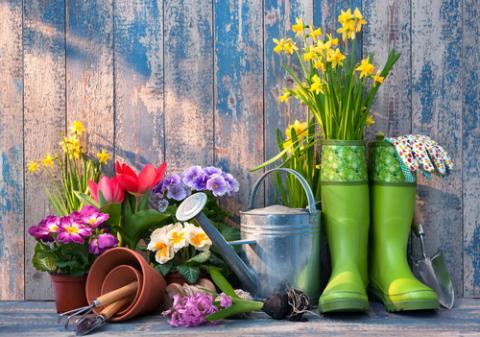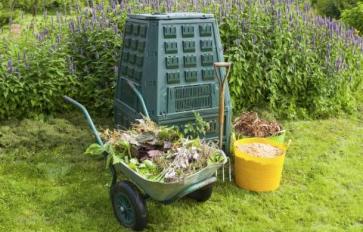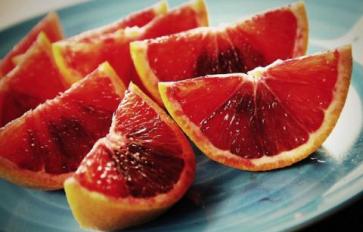
Whoever said that summers were not a loving time for a garden hasn’t quite planted a produce-happy summer garden. While winter vegetables are more heart-warming than a summer bounty, summer vegetables still have a lot going for them. The good thing about summer crops is that they only need a good hot and sweaty day to take root (and some watering). You can plant your summer produce from May to June. You can even plant them a second time around if the days are still hot and your veggies will continue to thrive till the beginning of fall. Your first planting can be of varieties that mature later. But as summer wanes, make sure the seeds you choose are the early-fruiting ones.
Before you arm yourself with summer seeds and go about scattering them in your garden, here’s what we all need to know and remember about summer season planting. Even though Mother Nature is full of sunshine these days, it’s always good to have some tricks and tips up your sleeve.
Summer Planting Tips
- Prepare The Soil: Summer soil tends to leach nutrients faster due to frequent watering, and this holds especially true for container plants. Tilling the soil before planting and using a good fertilizer (but half the amount) is what may work for summer soil and make it ready to bear baby plants well.
- The Right Summer Veggies: Make sure you have a list of veggies right and in accordance with the kind of heat and sun in your area. In case your seeds need a cooler climate, see if you can plant them under the shades of trees or canopies.
- Plant And Mulch: Once you have planted the seedlings, layering mulch over the soil is also a good idea to help the soil retain moisture for longer. Organic mulches mixed with slow-release fertilizers work well in summers.
- Remember To Prune: Deadheading flowers and pruning off any dead leaves and branches will make your plants sprout more flowers and fruits. In fact, deadheading flowers will spur growth in plants and make them bloom, or fruit all through the sunny days of summer.
- Watering Tips: Watering in the early morning hours is usually the best as the soil is cool at the time and lets plants absorb the water they need. In case the soil looks or feels parched in the evening, water again but wet only the soil and not the foliage lest mold takes root on leaves.
- Appropriate Pest Control: Summers can also bring in a host of more pests on your plants, deadly enough to ruin a good amount of your garden’s produce. So make sure you do your pest control in time and do it well. Like with everything, begin with small and relatively safer pest control methods before moving on to the heavy-duty chemicals.
- Learn To Let Go: A particular hot spell coupled with too little watering can be the death knell for your plants. If the wilted parts are turning yellow and dropping even further or the branches snap like twigs…well, all plants cannot be revived and some need to be gently let go of.
Best Veggies For Summer
Glowing tomatoes, fiery peppers, cool green summer squashes and cucumbers, jewel-colored eggplants, sweetcorn, and melons—summer is almost as delicious as winter. Summer’s bounty is more fruity than winter’s leafy goodness—but it is no less in nutrition and health.
- Tomatoes: Rich in lycopene and a cartful of antioxidants, tomatoes grow in sun-warmed gardens. Killed by a temperature of 32F or lower, tomatoes thrive in sunlight.
- Eggplants & Tomato-Family Plants: Basically all peppers, eggplants, and all kinds of tomatillos are also summer-friendly plants. For shorter growing seasons, it's best to plant these in late spring but indoors, to protect the seedlings from frost.
- Squash-Family Plants: From summer squashes to cucumber, melons to watermelons—all belong to the summer squash family and squashes are heat hogs. They thrive in the worst of summers, as long as they get enough water. And you can also get bush varieties of these, to avoid them growing rampantly on trees and other garden plants or structures.
- Corn: Call it corn or maize, this member of the grass family is an important cereal and fodder plant all over the world. Adequate moisture and summer temperatures between 64-80F works well for both germination and growth.
- Beans: The best source of protein for vegans, beans have so many different varieties, you could spend a lifetime growing them! A valuable staple in kitchens all over the world, beans can be had fresh off the vine as bean pods (as vegetables), or dried and cooked otherwise.
- Herbs: While you may not acquaint summer with herbs, there are plenty you can grow and enjoy in the heat. Think basil, dill, tarragon, oregano, mint, rosemary, thyme, and bay. And yet again, think of all those delish roasts and drinks that you can make using these summer-loving herbs.
- Summer-Shade Loving Veggies: In case you have a large part of the yard that doesn’t get enough sunlight (or, hopefully, gets only the morning sun and afternoon shade), never fear. There are plenty of vegetables that can thrive in shaded spots, and many of them may not even be summer-loving veggies to begin with! Try experimenting with beets, cauliflowers, cabbage, carrots, swiss chard, lettuce and salad leaves, arugula, kale, and radish. This way, your summer bounty will be more stupendous than ever!
Hope your summer garden shines as brightly as the sun. And in case you have some summer growing tips for us, do write to us in the comments section below.








